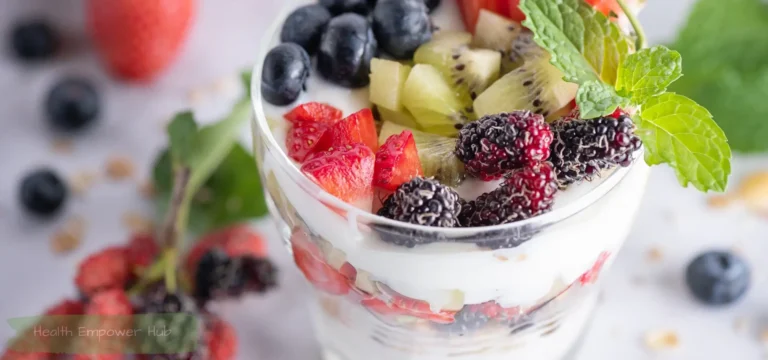Contrary to popular belief, Mental Health Day isn’t just another arbitrary observance marked on the calendar. It’s not merely about taking a day off or indulging in self-pity. Health Day holds far more significance—it’s a beacon of awareness, a reminder to prioritize our mental well-being, and an opportunity to break free from the shackles of stigma surrounding health day.
Understanding Mental Health:
In today’s fast-paced world, the term “mental health” often conjures images of illness or instability. However, health day encompasses a broad spectrum of experiences, ranging from moments of stress and anxiety to periods of calm and contentment. It’s about more than just the absence of mental illness; it’s about nurturing our emotional and psychological well-being, just as we would our physical health.
Despite its importance, health day is often shrouded in misunderstanding and stigma. Many still believe that acknowledging health day issues is a sign of weakness or that seeking help is something to be ashamed of. However, this couldn’t be further from the truth. Just as we wouldn’t hesitate to seek treatment for a physical ailment, we shouldn’t hesitate to seek support for our mental well-being.
Celebrating Mental Health Day: Why It Matters:
Mental Health serves as a powerful reminder of the importance of mental well-being in our lives. It’s a day dedicated to raising awareness, fostering understanding, and promoting acceptance of mental health issues. By shining a spotlight on these issues, Mental Health helps to break down the barriers that prevent many from seeking the help and support they need.
Moreover, Mental Health is a time for celebration—a celebration of resilience, of courage, and of the human spirit. It’s a day to honor those who have bravely shared their stories, to acknowledge the progress we’ve made in destigmatizing mental health, and to recommit ourselves to the ongoing work of building a more compassionate and supportive society.
Dispelling the misconception that Mental Health is merely a symbolic observance, it’s crucial to recognize its profound significance. It’s not about indulging in self-pity or escapism; rather, it’s a call to action, urging us to prioritize our mental well-being and embrace practices that nurture our inner peace and resilience.
Mindfulness Practices for Mental Health Day:
In today’s fast-paced world, finding moments of stillness amidst the chaos can feel like a daunting task. However, integrating mindfulness practices into our daily routine can have transformative effects on our mental well-being. Mindfulness isn’t about emptying the mind or suppressing thoughts; rather, it’s about cultivating a non-judgmental awareness of our thoughts, emotions, and sensations in the present moment.
One simple yet powerful mindfulness practice is deep breathing. Taking a few moments to focus on our breath can help calm the mind, reduce stress, and increase feelings of relaxation. Another effective technique is mindful walking, where we pay close attention to the sensations of each step we take, grounding ourselves in the present moment.
Self-Care Rituals for Mental Health Day:
Self-care is often misunderstood as indulgence or selfishness, but in reality, it’s an essential aspect of maintaining good mental health. Self-care isn’t about extravagance or luxury; it’s about prioritizing our own needs and nurturing our physical, emotional, and psychological well-being.
There are countless ways to practice self-care, and it’s important to find what works best for you. It could be as simple as taking a long bath, spending time in nature, or indulging in your favorite hobby. The key is to carve out time in your schedule for activities that replenish your energy and bring you joy.
Pros and Cons:
While the benefits of mindfulness and self-care on Mental Health are undeniable, it’s essential to acknowledge that they are not panaceas for all mental health challenges. While these practices can provide valuable tools for managing stress, anxiety, and depression, they are just one piece of the puzzle. Additionally, there may be barriers to implementing these practices, such as lack of time, resources, or support. However, by approaching mindfulness and self-care with an open mind and a willingness to experiment, we can discover what works best for us and tailor our practices to suit our unique needs and circumstances.
Verdict:
In conclusion, while Mental Health Day may be just one day out of the year, its impact can reverberate far beyond its allotted 24 hours. By embracing mindfulness and self-care on Mental Health, we can cultivate greater resilience, enhance our overall well-being, and lay the foundation for a healthier, happier future. So let us seize this opportunity to prioritize our mental health, both on Health day and every day thereafter.
FAQs:
Q: Is mindfulness suitable for everyone? A: While mindfulness can benefit many people, it may not be suitable for everyone, especially those with certain health conditions. It’s essential to consult with a healthcare professional before beginning a mindfulness practice, especially if you have a history of trauma or severe mental illness.
Q: How can I incorporate mindfulness into my busy schedule? A: There are many ways to incorporate mindfulness into your daily routine, even if you’re short on time. You can start with short mindfulness exercises, such as taking a few deep breaths or practicing mindful eating during meals. Find moments throughout the day to pause and check in with yourself, even if it’s just for a few minutes at a time.
Q: What if I struggle to prioritize self-care? A: Prioritizing self-care can be challenging, especially when we’re juggling multiple responsibilities. Start by identifying small, achievable self-care activities that bring you joy and make them a non-negotiable part of your routine. Remember that self-care isn’t selfish; it’s necessary for maintaining your well-being and resilience.
Q: Are there any risks associated with practicing mindfulness or self-care? A: While mindfulness and self-care are generally safe for most people, there may be some risks, especially if practiced in excess or without proper guidance. For example, mindfulness practices that involve intense focus on difficult emotions or traumatic experiences may trigger distressing thoughts or memories. It’s essential to approach these practices with self-compassion and seek support from a qualified professional if needed.










